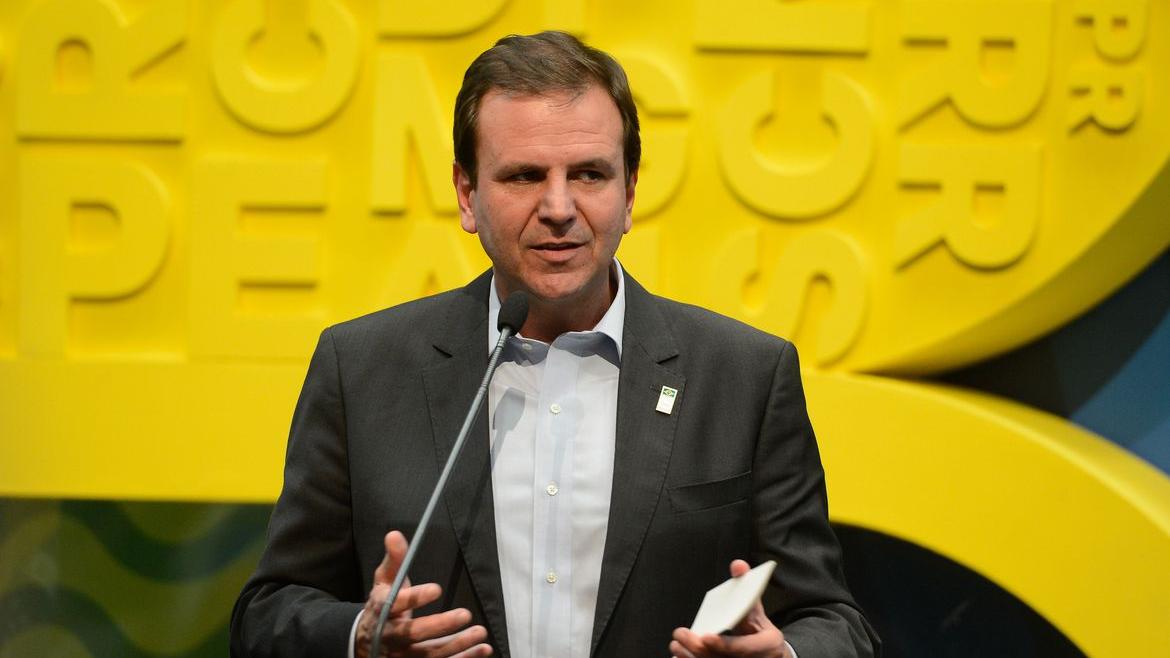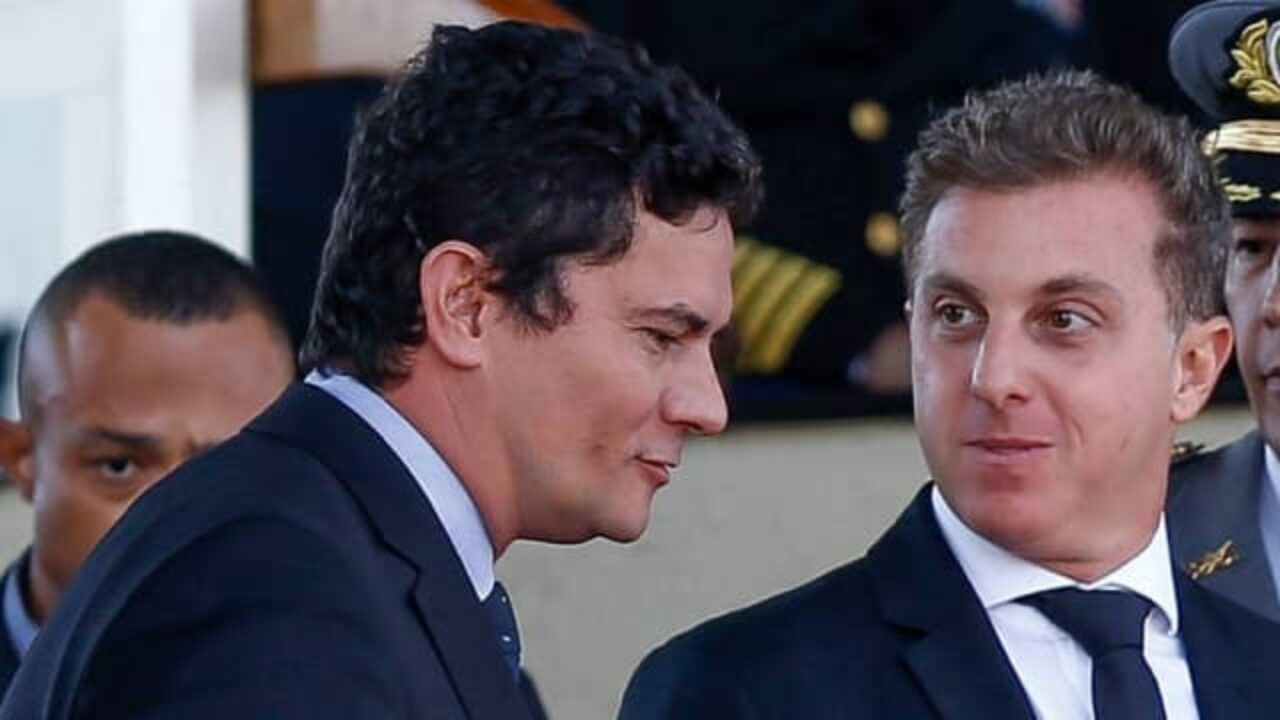RIO DE JANEIRO, BRAZIL – The mayor-elect of Rio de Janeiro, Eduardo Paes (DEM), wants to have a greater party-political performance than he had at other times in his career.
On Monday, November 30th, he argued that the party should support a “political framework” for the 2022 presidency. Simultaneously, he praises TV host Luciano Huck, who has been talking to DEM about candidacy, but points out resistance to former judge and Minister Sergio Moro.
Paes also stands as an advocate for the increase of blacks and women in his party, as well as in his own secretariat – to date, he has announced three whites. But political action has a limit: the administration of Jair Bolsonaro: “I will not be a rival to him.”

Despite the constant friction between Bolsonaro and Rodrigo Maia (DEM), Paes’ faithful ally, Paes refrains from pointing out the President as one of the defeated radicals he described in his victory speech.
“I already talked to him today. He was very courteous to me.”
He then compared the profile of the defeated candidates with the removed Rio de Janeiro governor, Wilson Witzel (PSC), and ex-president Dilma Rousseff (PT). “This rookie thing doesn’t work out. They do not know the reality of the people, they never asked for a vote. There’s a certain degree of arrogance,” he said.
Question – You said that the election result was a sign against radicalism. Who is radicalizing in the country?
Answer: I’m not going to keep naming and adjectivizing. As of 2013, we have been living a situation of much hatred, of little dialogue, which has caused harm. This rookie thing, the guy who comes from another activity and suddenly becomes a ruler, doesn’t work. They don’t know the reality of the people, they never asked for a vote. There is a certain degree of arrogance.
Witzel is perhaps the one who represents this the most. In a way, Dilma’s very profile, of struggling to dialogue with different players. She had a political life, but she had never disputed an election.
The speech was interpreted as a message to Bolsonaro.
I didn’t intend to give a message to anyone. I made a statement about the country’s elections.
Do you see him as radical?
I already talked to him today. He was very courteous to me and I’m sure we’ll have a much dialogue.
How was the conversation?
It was good, quick. Obviously I made a joke. I said, “I couldn’t get you rid of Witzel, but I got you rid of Crivella. He said, “Come on over, have a coffee with me.” I will be happy to go.
What role will DEM play in 2022, and what will your role be?
I’m going to do more politics than I did in my previous mandates. We have two figures from the DEM who are the president [of the Chamber] Rodrigo Maia and the president [of the DEM party] ACM Neto. But I’m going to speculate and help. I want to act more here. If [acting governor] Claudio Castro (PSC) is good, maybe he’ll support reelection. Rio needs to get out of this muddle it has gotten itself into.
You say you want to participate more in party life, but Bolsonaro has shown himself to be little receptive to people with plans different from his, like [the governors] João Doria (PSDB-SP) and Flávio Dino (PCdoB-MA). Can it affect your relationship with him?
I’m not going to [be a] rival [to] Bolsonaro.
But he can be a rival to you.
He won’t. I am the mayor of his city. He will want to help his city.
Who should DEM have for 2022?
There’s coordination with Huck, Moro, from the other side Ciro [Gomes]. There must be a specific path with politicians, with the ability to articulate and dialogue.
Does one name in politics exclude Huck and Moro?
Huck is a guy with great dialogue. He makes his living in public relations, which is a bit of a political thing. This thing of helping people allows him to know a little about the reality of the country. Moro is a judge. Once a judge, always a judge.

Is an approach with PDT (Democratic Labor Party) remote?
The PDT lost two opportunities here in Rio to make an alliance. In 2018 they launched Pedro Fernandes and now Martha [Rocha]. The PDT, for our background, could have walked together with us. I even like Ciro, I get along well with him. But I don’t see any evidence of a party wanting an alliance.
For a long time, you had alliances with left-wing parties, like the PT. How did you perceive its poor results?
There was a victory of the political center, of balance and dialogue. The left was in power for a long time. But I still have great dialogue with PT and with PCdoB (Communist Party of Brazil). In these last two elections, a dialogue was opened with PSOL (Socialism and Liberty Party). They are the opposition, but they have a line of dialogue.
After two defeats, do you see this victory as a fresh start?
It’s not a fresh start. I haven’t left politics. I just had to support myself.
I readress this because you even had your name considered for the presidency, and today…
That’s politics. Only those who don’t know this business become depressed or too excited. Politics is made up of ups and downs. You have to be resilient.
You will take office in a more delicate legal situation, a defendant [for corruption] in two criminal proceedings. Why do you think the police operation on the eve of the campaign did not affect you politically?
I don’t know if it didn’t. Maybe I would have won in the first round. Everyone in public life has to answer for their actions. But people began to realize that some of these operations had a certain political bias. Why should there be a search and seizure in my house for a fact that allegedly occurred in 2012? It doesn’t make much sense. I’m not questioning the work the Prosecutor’s Office and the courts have to do. But we can’t afford to lose credibility in the judicial system. People have begun to realize this, and it’s very bad.
I’m appointing a Health Secretary [Daniel Soranz] who has a misconduct lawsuit pending because it’s impossible for a guy to spend more than three days in an Executive position and not face a misconduct lawsuit.
A criminal lawsuit is more serious.
Without a doubt. I was already a defendant in a criminal lawsuit. I was acquitted in two. One for encouraging the exit polls and the guy [the prosecutor] wanted to make a criminal law settlement, so that I would score points in Queimados [a Rio suburb] every 15 days. Of course it’s uncomfortable.
You point out that the whistleblowers say you didn’t ask for kickbacks. But they also say that you received slush funds. Why do they [allegedly] tell the truth in one case and lie in the other?
I didn’t take slush funds in my campaigns. And my feeling with these guys is that they don’t even know what campaigns they helped. It seems that control was somewhat flimsy.
At the end of the campaign, Crivella said that you are going to be arrested.
We weren’t on the street. If it were on the street, he and I, he would get punched in the face. He spoke in the debate. I saw it as desperation.
You say you want to build an antiracist government. What will it be like?
It’s about having blacks in the top ranks. Prejudice is very deep-rooted, and antiracism draws our attention to what we don’t even understand. If you look at my first governments, I didn’t have blacks in my top ranks. I wasn’t anti-racist. Now I have to be assertive.
Does DEM also need to expand this space?
I think so, we have to increase the participation of blacks and women. Because of my interaction with left-wing parties, I learned a lot about this.
Should Rodrigo Maia be reelected to the Chamber presidency?
It’s necessary for Brazil. In these troubled times, he has proved to be a kind of master of balance.
But he has suffered with Bolsonaro and his sons.
Who said he didn’t suffer with Michel Temer as well? The leading role brings joys and problems.
The level is another of attack.
Well…
X-RAY:
Eduardo Paes, 51, Mayor-elect of Rio de Janeiro. He managed the city for two consecutive terms, between 2009 and 2016. He was State Secretary of Tourism, Sports and Leisure (2007 and 2008), federal deputy (1999 to 2007), and city councilor (1997 to 1998).
Source: Folhapress

